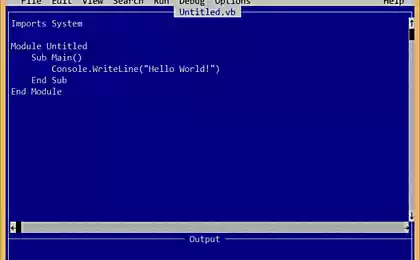995
Unconditional income: Finland plans to implement the first national project in the European Union

Social Insurance Institution of Finland, KELA, expressed some preliminary ideas about the experiment, and then widespread introduction in the country of unconditional income (DB). As a result, the database will replace all other benefits received by the people, and will be relatively large. According to the calculations, the citizens of Finland, will receive a tax-free sum of 800 euros a month, and during the testing of the project - 550 euros per month. It is planned that during the pilot phase of the project people will not lose their benefits, and people keep those subsidies that they now receive.
Olli Kangas, director of research KELA, shared more information about this. The pilot phase will be held across the country, but its members will be selected by lottery. The experts are still working on the model, which will be agreed with the Finnish constitution. In March 2016 they offered the Government several systems to choose from, and the government will make a decision in November 2016 to launch a pilot phase in 2017.
Finland will be the first country that introduces a database, and it is impressive - but also raises some questions about the initiative.
Is there a chance to end poverty in Finland because of a DB? h4> The idea of the database originates in the work of libertarian economist Milton Friedman . In 1962, he played for the guaranteed minimum income in the form of a "negative income tax". He believed that such income should be the final phase of a minimum income, or any other social security system. He also believed that the database should be as small as possible, and be funded from a single income tax (ie, universal and one rate for all).
So actually Freedman campaigned for a system that would allow employers to provide workers willing to work for less money, and it does not impose an additional burden on employers.
Therefore it is important to understand how it is determined, in this case the DB. If it is less than the minimum subsistence level, people can not survive, they will have to look for work at any wage, which will lead to a reduction in wages. If it is high enough, as the demand of the "Left", there is a risk that people will not work at all. But experiments in the United States have shown that the risk is minimal. In the case of Finland, the plan includes the amount of income is 800 euros a month per person.
Whether it is sufficient to eliminate poverty? If we consider the most necessary human waste is not working, and living alone, does not allow such income to pay for shelter, for food and other basic needs of the people living in the Helsinki area. It compares favorably with a pension for those who have no pension for length of service (636 euros), but these retirees have subsidies for housing, and just still below the poverty line.
For example, experiments in the United States in Denver and Seattle, which took place in 1970, provided 5,000 families annual income from $ 3,800 to $ 5,800 (in today's prices is between 20,000 to 32,000 euros). The Dutch Utrecht experiment with the database was limited to the amount of 850 per person and 1,300 for a couple, but Olli Kangas noted that this amount is too high for Finland, where social support is worse than in the Netherlands.
So, the main purpose of the reform is not a struggle against poverty, especially since it must pass without increasing public spending. Her goal - to reduce bureaucracy and encourage the parasitism of people find themselves any work. Now it seems that the Finnish experiment will be closer to Friedmann's views, rather than the hopes of those who want to do away with poverty. However, since the project is not yet selected, everything can change. Olli Kangas also have to deal with different conditions in different parts of the country, with different prices for housing, and therefore it may be necessary to keep some housing subsidies.
What type of the alleged database? h4> Apparently, it is assumed introduction of a universal database, common to all. According to Kangas, "all citizens of Finland receive a non-taxable amount" of 800 euros.
This formulation raises questions. Will the children and infants are also at 800 euros? Probably not, because in an interview, he spoke exclusively about the adults. So, child benefits will be required to leave. Another question concerns the "Finnish citizens." Does this mean that non-citizens will be excluded? At the moment, EU citizens working in Finland enjoy the same social benefits as Finnish citizens. And yet - you will receive 800 euros Finnish citizens living abroad?
Another controversy among fans of the database is the issue of whether to require the recipients of income to show any socially useful activity - except for those who can not do it by physical or mental characteristics. The information on this experiment, says nothing about this. Will I be able to get the database while skiing in Lapland, or lounging in the cottage on the lake? This dilemma is well described in the book "Theory of Justice" by John Rawls (John Rawls, "A Theory of Justice"), leading some to recommend the use of the database only to those citizens who are involved in any socially useful affairs. But even here there are problems. It can be considered as socially useful work participation in the non-profit organization. What about cultural? Artists, writers? How about a game of cards with friends in need of? I'm not sure that in the Protestant societies all will be easy to agree with the distribution of 800 euros per month without any conditions. Perhaps that is why even successful experiments in the United States were not extended.
How to finance the database? h4> According to an interview published in the edition of Lännen Media, Lisa Nissan [Liisa Hyssälä], the head of KELA, argues that the budget reform will save millions of euros.
This is surprising because previous calculations show that the database will cost the country too much. For example, from the report of 1994 shows that the database is not economically beneficial to the country. The report proposed to replace it with a partial database does not fully cover the cost of living. Pentti Arayaarvi [Pentti Arajärvi], which was asked in 1996 to write a report for the Ministry of Social Affairs and Health, wrote in 1998 in the magazine "Economy and Society" article, which claimed that the OBD system is too expensive. In the same magazine, in an article by Professor of Economics Matti Tuomala [Matti Tuomala], voiced support for the current social security system. Even Olli Kangas seems to be hinting that the cost of the database will be comparable to the cost of the current social security system.
At the end of the 20th century Finnish Minsotszdrav develop models and simulations to explore the database. Since the beginning of the 21st century KELA has developed a model JUTTA, allows you to make even more detailed simulations. In 2004, researcher Pertti Honkamaki [Pertti Honkamäki] made using the model calculations for the case of the database monthly amount of 400 euro, replacing them all social payments. He had to make a calculation of percent tax for the occasion. According to estimates, the taxes for those earning more than 60,000 euros per year should be 55%, and for the rest - 48%, which is hardly possible. But in this model were not taken into account the reduction in the costs of bureaucracy and behavior of citizens.
The last word rests with the Pertti Honkanenom, principal investigator of the KELA, who made a report at the University of Tampere in 2011 under the name "Universal basic income as the European alternative." Based on the model JUTTA, he presented his calculations of income for 400 euros / month, and concluded that "it is possible to create a system database, which includes many features of the existing system; the transfer of income between households and individuals are large, but not unreasonable; It remains a need for some grants because of the high cost of housing. " But will it be acceptable raising taxes in the case of the database size is 800 euros?
Applications Hissala Fox must have been too optimistic. Therefore it will be very interesting to analyze the proposals in November KELA as these financial risks and its application may mean that as a result of a basic income would not be what we expect to see it.
Will the Finns take a DB? h4> From the perspective of political parties, most of their members were in favor of such a project. "Green" always supported the idea, the Left also act for her. Central Party proposed to include it in the program of the government. It also supports the National Coalition Party, and less willing - party "True Finns».
Several years ago, the Social Democrats opposed it on the basis of the publication of the fund Kalevi Sorsa: "Unconditional income. Rigid or soft decision? ". The work was written trade union researcher Ville Kopra, who harshly criticized the idea of the database. One of the leaders of the party clearly outlined during the debate in 2007, those objections: "DB encourages passivity, is too expensive, is just another system among others, and does not match the Lutheran work ethic." In addition, the rejection of certain database is due to the close ties between the Party with the unions, who believe that the database is not associated with the work will lead to a reduction in wages, and in accordance with the precepts of Milton Friedman will be profitable only for employers. However, the Social Democrats in 2015, not particularly hard opposed the initiative.
In addition, there is a slight difference of opinion from all parties. Some Social Democrats support this idea. The alliance of leftist people associated with trade unions, expressed a negative attitude to the database. Even the Greens have not been 100% support. In 2006, all companies have ordered from TNS Gallup Oy questionnaire that included the question: "Do I have to give a salary to all citizens?". 29% of citizens said "yes" (36% of them were from the Green Party), and 47% said "No" (of which 44% were from the Green Party). A year later, the idea of the database appeared in the program of the Greens.
In the case of public debate public opinion becomes extremely sensitive. But, as was shown in 2002 at the European Congress on the unconditional income "unconditional income support in Sweden and Finland", depends on the support of the database language. 76% of Finns support the idea of a negative income tax of 63% - of unconditional income, and 79% - a guaranteed income for working people. However, three of these concepts are almost equal. It should be noted that these figures are much higher in Finland than in Sweden.
Will the country adopted a different view of the work, combined with the database? h4> In connection with the implementation of the database there is a question about the work. In Europe, a large number of the unemployed, and the chances that their numbers will decrease in the near future are small. In particular, this is due to the strong automation and robotics, which lead to a reduction in the number of jobs.
It should think about the fact that this situation could become permanent - when we will have fewer people working for the production of all necessary. With a decrease in the amount of resources in the world production growth looks unrealistic. Some say that we are entering a new era of human development, and the current social measures are no longer adequate. In recent years, poverty and social problems are growing, and there are no signs of improvement in the situation is observed.
This situation can be approached in different ways. You can reduce the number of hours (and wages). You can using the database to encourage people engaged in other activities, except for normal operation. This can lead to the creation of a new type of society, where it will be possible to choose between work and unpaid cultural or social activities.
What to expect? h4> At the moment, the idea is developed without any problems. But on her way are two major obstacles: the publication of the proposals people will see who will win and who will lose in the event of the introduction of such a program. This can lead to unrest. And then, when it comes to a vote in Parliament, some of its members may change their attitude towards this issue.
However, in Finland the decision reached levels of government, is generally accepted. The next few months will be very interesting, and all the European community will closely monitor this serious Finnish initiative.
Source: geektimes.ru/post/265764/
Amazon will heat the new "eco-friendly" campus hot water supplied from the data center
Scientists have developed two new methods of water desalination























